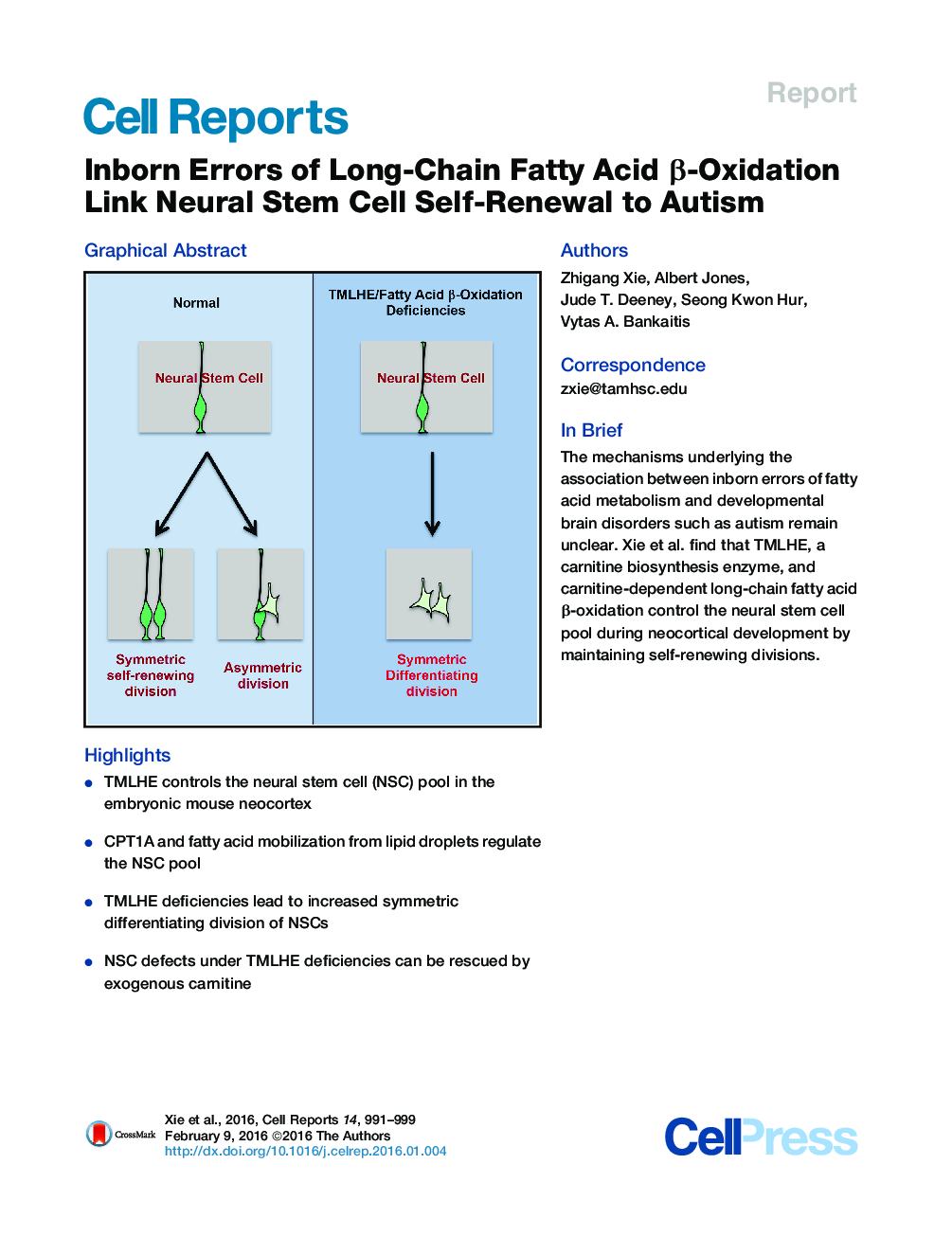| کد مقاله | کد نشریه | سال انتشار | مقاله انگلیسی | نسخه تمام متن |
|---|---|---|---|---|
| 2040515 | 1073116 | 2016 | 9 صفحه PDF | دانلود رایگان |
• TMLHE controls the neural stem cell (NSC) pool in the embryonic mouse neocortex
• CPT1A and fatty acid mobilization from lipid droplets regulate the NSC pool
• TMLHE deficiencies lead to increased symmetric differentiating division of NSCs
• NSC defects under TMLHE deficiencies can be rescued by exogenous carnitine
SummaryInborn errors of metabolism (IEMs) occur with high incidence in human populations. Especially prevalent among these are inborn deficiencies in fatty acid β-oxidation (FAO), which are clinically associated with developmental neuropsychiatric disorders, including autism. We now report that neural stem cell (NSC)-autonomous insufficiencies in the activity of TMLHE (an autism risk factor that supports long-chain FAO by catalyzing carnitine biosynthesis), of CPT1A (an enzyme required for long-chain FAO transport into mitochondria), or of fatty acid mobilization from lipid droplets reduced NSC pools in the mouse embryonic neocortex. Lineage tracing experiments demonstrated that reduced flux through the FAO pathway potentiated NSC symmetric differentiating divisions at the expense of self-renewing stem cell division modes. The collective data reveal a key role for FAO in controlling NSC-to-IPC transition in the mammalian embryonic brain and suggest NSC self renewal as a cellular mechanism underlying the association between IEMs and autism.
Graphical AbstractFigure optionsDownload as PowerPoint slide
Journal: - Volume 14, Issue 5, 9 February 2016, Pages 991–999
